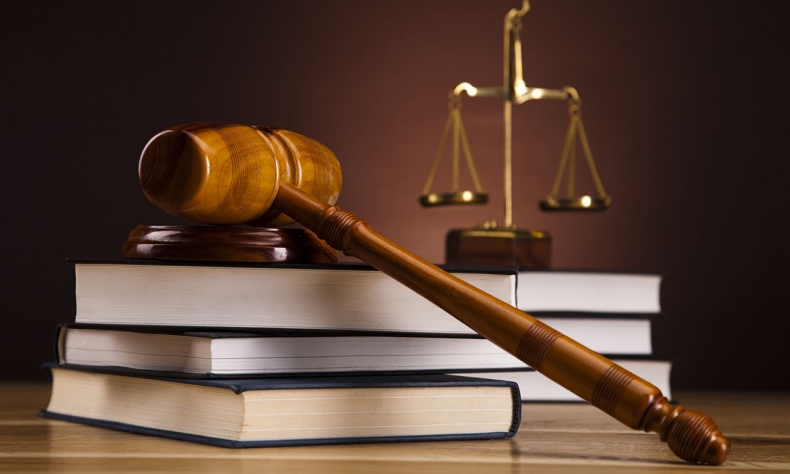Why does China Grant the Special Amnesty This Year?

The amnesty sublimes historical experience and is a profound grasp of how the laws govern the country.
On June 29, Chinese President Xi Jinping signed an order of special amnesty for nine categories of criminals on the occasion of the 70th anniversary of the founding of the People’s Republic of China (PRC). The amnesty is the second of its kind since the 70th anniversary of the victory in the Chinese People’s War of Resistance Against Japanese Aggression.
The amnesty sublimes historical experience and is a profound grasp of how the laws govern the country.
The Special Amnesty System Is Stipulated by Constitution
China’s Constitution has explicit stipulations related to special amnesty. As early as 1949, the Organization Law of the Central People’s Government of the PRC has stipulated that the Central People’s Government Committee has the power to promulgate general and special amnesty decrees.
Under the Constitution of 1954, the first constitution of socialism in China, the National People’s Congress (NPC) and the NPC Standing Committee have the power to issue the decrees of general and special amnesty respectively.
Since then, there has been no stipulation on amnesty system in the following revised constitutions in China, which indicates that the system has been abolished by law. However, the special amnesty system has been retained in the Constitution.
China’s Special Amnesty for the Protection of Human Rights
A special amnesty is an internationally-accepted humanitarian measure given by a government on national events or special historical occasions to allow a person to be absolved of guilt for an alleged crime or any legal offense. Most countries have the stipulations on special amnesty in their constitutions, criminal laws or separate laws.
In the U.S., the special amnesty system is adapted to its federal system, and both the federal government and the states have independent amnesty-granting powers. The amnesty power for offenses against the U.S. is authorized to the President of the U.S., and the amnesty power at the state level is authorized to the state’s chief executive.
In the United Kingdom, the general amnesty system has been abandoned except for special amnesty, which can be exercised by the Queen of England and the Parliament. While in France, both general and special amnesty systems are in operation. In practice, the French President has the power to issue special amnesty and the Parliament is empowered to issue general amnesty pardons.
Japan’s amnesty system is called “amnesty by grace”, which is usually considered to be the blessing of the Emperor of Japan. The Constitution of Japan grants the cabinet the power to decide, and the Emperor of Japan has the power to approve the cabinet’s decision on amnesty. Meanwhile, the Pardon Act was enacted to comprehensively stipulate the applicable conditions and procedures of amnesties by grace.
In the modern rule of law, the amnesty system has evolved from a privileged system embodying the grace of monarchy in tradition to a human rights protection system that reflects the tolerance of criminal law, tempers justice with mercy, and demonstrates the humanitarian spirit.
Amnesty System in China
The decision to grant special amnesty signed by Chinese President Xi Jinping on June 29 was first made by the Central Committee of the Communist Party of China. Then the decision was adopted by the NPC Standing Committee, the President issued an order of special amnesty, agencies including the judicial administrative agencies filed a request for an amnesty, which were trialed by the people’s courts, and finally the people’s procuratorate would be responsible for supervising the implementation of special amnesty. Each step has been carried out strictly in accordance with the statutory procedures prescribed by the Constitution of China.
This special amnesty applies to nine categories of criminals who are serving sentences according to an effective judgment issued by the People’s Court before Jan 1, 2019. The nine categories of amnesty are also determined by careful legal and moral measures.
China focuses on the historical moment of celebrating the 70th anniversary of the founding of the PRC. At this important historical event, amnesty to a number of criminals who once made contribution to the founding of New China, consolidating national defense, defending the country.
The special amnesty is a humanitarian measure, focusing on the manifestation of Chinese socialist morality in penalty, and implementing the criminal policy of combining justice with leniency and the humanitarian.
The amnesty for the elderly, the disabled, minors and females of the sixth, seventh and eighth categories shows the humanitarian spirit in execution of punishment.
For the aged and disabled, their social harmfulness is basically eliminated. Therefore, the amnesty for them shows the traditional virtue of caring for the elderly and weak in China.
The amnesty for some criminals who were under the age of 18 when committing crimes, female criminals with exceptional children to be raised, and criminals of the ninth category with low social danger may arouse their gratefulness to the CPC, the state, and society.
This is conducive to their care for families, truly integrating into the society and actively repaying the society. These reflects the virtue of love, benevolence and forgiveness, and the humanitarian care contained in China’s laws.
In addition to the above-mentioned, the amnesty for criminals involved in excessive defense or excessive risk aversion of further promotes the spirit of gallantry and inspires social positive energy, serving as a good guide to the present social atmosphere.
Professor Zhang Liwei with Academy of Politics and Law, Party School of the Central Committee of CPC
 Facebook
Facebook
 Twitter
Twitter
 Linkedin
Linkedin
 Google +
Google +










